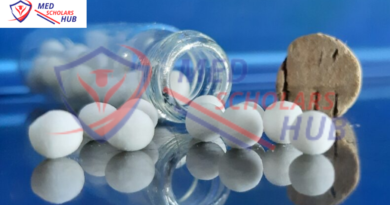Path to Prepare for Medical School: A Comprehensive Guide to Make Your Career in Medicine
Embarking on the journey toward a career in medicine is both exhilarating and challenging. The pursuit of becoming a healthcare professional involves meticulous preparation and a steadfast commitment to excellence. This comprehensive guide explores the multifaceted aspects of preparing for a medical career, covering academic prerequisites, extracurricular involvement, standardized tests, and the essential qualities that make a successful medical school applicant.
Academic Excellence:
- Solid Foundation in Sciences: A strong academic foundation in the sciences lays the groundwork for success in medical school. Focus on excelling in biology, chemistry, physics, and mathematics during your undergraduate studies.
- Research Opportunities: Engaging in research not only enhances your understanding of scientific inquiry but also demonstrates your commitment to advancing medical knowledge. Seek research opportunities in areas that align with your interests.
- Excellence in Pre-Med Courses: Achieving high grades in pre-med courses, such as organic chemistry and biochemistry, showcases your aptitude for the rigorous curriculum of medical school. There are many medical universities for medical preparing to seek research opportunities.

Extracurricular Involvement:
- Clinical Experience: Actively seek clinical experiences to gain insight into the medical field. Volunteering in hospitals, and clinics, or shadowing experienced healthcare professionals provides valuable exposure.
- Community Service: Demonstrate your commitment to community well-being through volunteer work. Engaging in service projects reflects positively on your character and dedication to making a difference.
- Leadership Roles: Assume leadership roles in student organizations, community groups, or campus activities. Leadership experience showcases your ability to take initiative and work collaboratively.
- Extracurriculars Beyond Medicine: Showcase a well-rounded personality by participating in extracurricular activities outside the medical realm. Whether it’s sports, arts, or cultural organizations, these experiences contribute to your overall profile.
Standardized Tests:
- MCAT Preparation: The Medical College Admission Test (MCAT) is a critical component of the application process. Develop a comprehensive study plan well in advance, utilizing reputable resources and practice exams.
- Practice and Simulations: Regularly engage in MCAT practice tests and simulations to familiarize yourself with the test format, refine time management skills, and identify areas for improvement.
Related Article: What Courses Are Needed to Become a Dermatologist?

Personal Qualities and Attributes:
- Compassion and Empathy: Medicine is inherently a people-centered profession. Cultivate compassion and empathy by engaging in activities that require understanding and responding to the needs of others.
- Communication Skills: Effective communication is vital in healthcare. Hone your verbal and written communication skills through coursework, public speaking, and writing projects.
- Resilience and Adaptability: The medical field is dynamic, and challenges are inevitable. Demonstrate resilience by overcoming setbacks and showcasing adaptability in various situations.
- Ethical Decision-Making: Develop a strong ethical foundation. Engage in ethical discussions, and consider taking philosophy or ethics courses to enhance your ability to make sound moral decisions.
Application Process:
- Strategic Timeline: Develop a strategic timeline for the application process. Ensure that you have sufficient time to gather recommendation letters, complete personal statements, and submit your application well before deadlines.
- Letters of Recommendation: Cultivate meaningful relationships with professors, mentors, or professionals who can provide compelling letters of recommendation. Choose individuals who can attest to your academic and personal qualifications.
- Crafting a Personal Statement: Your personal statement is a crucial element of your application. Share personal anecdotes that highlight your journey, motivations, and unique qualities that make you a suitable candidate for medical school.
- Mock Interviews: Prepare for medical school interviews by participating in mock interviews. Practice common interview questions, refine your responses, and seek constructive feedback to enhance your communication skills.
Financial Considerations:
- Research Financial Aid Options: Investigate financial aid options and scholarships available for medical students. Be proactive in seeking information about tuition, living expenses, and potential sources of financial support.
- Budgeting Skills: Develop budgeting skills to manage finances effectively during medical school. Understand the cost of living in the area where your chosen medical school is located and plan accordingly.
Conclusion:
Preparing for a medical career is a holistic endeavor that requires dedication, resilience, and a commitment to personal and academic growth. By focusing on academic excellence, engaging in meaningful extracurricular activities, excelling in standardized tests, and cultivating essential personal qualities.
Also, by navigating the application process strategically, and considering financial aspects, aspiring medical professionals can lay a robust foundation for success. Remember, the journey to medical school is not just about meeting requirements; it’s about embracing the values and qualities that define an exceptional healthcare professional.




